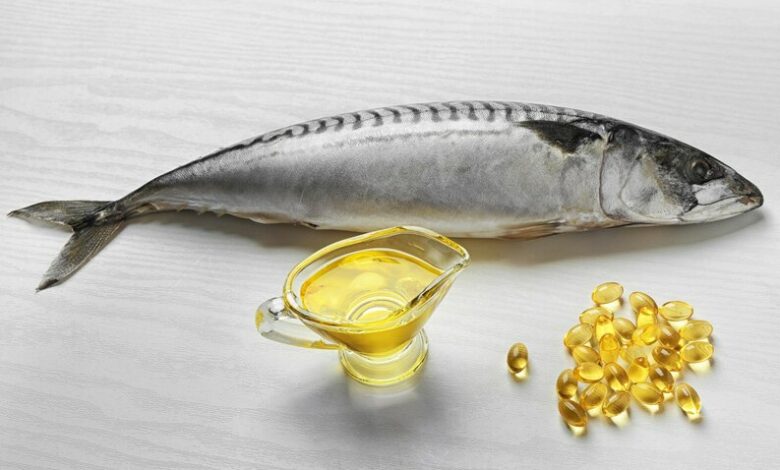Harnessing the Power of Fatty Acids for Cancer Prevention
Power of Fatty Acids for Cancer Prevention

Cancer is a formidable adversary that affects millions of lives worldwide. While there is no guaranteed method of preventing cancer, emerging research suggests that dietary choices can significantly impact our risk of developing this devastating disease. Among the dietary factors, fatty acids—specifically omega-3 and omega-6 fatty acids—have garnered increasing attention for their potential role in cancer prevention. In this blog, we will explore the fascinating realm of fatty acids and how we can harness their power to reduce the risk of cancer.
Understanding Fatty Acids
Fatty acids are fundamental components of our diet and are essential for various bodily functions. They are categorised into several types, with saturated fats, monounsaturated fats, and polyunsaturated fats being the primary groups. When it comes to cancer prevention, the focus primarily centres on polyunsaturated fats, particularly omega-3 and omega-6 fatty acids.
Omega-3 Fatty Acids: Nature’s Cancer Fighters
Omega-3 fatty acids, commonly found in fatty fish like salmon, mackerel, and sardines, as well as in flaxseeds and walnuts, have emerged as potent cancer fighters. Here’s how they contribute to reducing cancer risk:
- Anti-Inflammatory Properties: Chronic inflammation is a known factor in cancer development. Omega-3 fatty acids possess strong anti-inflammatory properties, helping to mitigate the chronic inflammation that can lead to cancer.
- Cellular Balance: Omega-3s play a crucial role in maintaining the balance between cell growth and cell death. This balance is essential because cancer often arises when cell growth becomes uncontrolled. Omega-3s help regulate this process.
- Enhanced Immune Response: A robust immune system is vital for identifying and eliminating cancer cells. Omega-3s boost the immune system’s response, aiding in the recognition and destruction of cancerous cells.
- Anti-Angiogenic Effects: Omega-3s can help inhibit angiogenesis, the process by which tumours develop their blood supply. By limiting blood vessel formation, omega-3s can slow tumour growth.
- Potential Genetic Influence: Some studies suggest that omega-3 fatty acids may affect the expression of genes involved in cancer development, potentially reducing the genetic predisposition to cancer.
Omega-6 Fatty Acids: The Double-Edged Sword
Omega-6 fatty acids, found in vegetable oils like soybean, corn, and sunflower oil, as well as in many processed and fried foods, are essential for our health. However, an excessive intake of omega-6 fatty acids, especially in relation to omega-3s, can promote inflammation and increase cancer risk. Achieving the right balance between these two types of fatty acids is crucial.
- Inflammatory Effects: Omega-6s tend to promote inflammation, unlike omega-3s, which have anti-inflammatory properties. While inflammation is a necessary part of the immune response, excessive and chronic inflammation can contribute to cancer development.
- Prostaglandin Production: Omega-6s are precursors to pro-inflammatory prostaglandins, while omega-3s are precursors to anti-inflammatory prostaglandins. An imbalance in favour of omega-6s can lead to an overproduction of pro-inflammatory substances.
- Cell Growth: Omega-6 fatty acids can influence cell proliferation and survival pathways, potentially promoting uncontrolled cell growth when not balanced with omega-3s.
Achieving the Right Balance
The key to unlocking the cancer-preventing potential of fatty acids lies in achieving a balanced ratio between omega-3 and omega-6 fatty acids in your diet. Here are practical steps to help you achieve this balance:
- Increase Omega-3 Intake: Incorporate omega-3-rich foods into your diet. Fatty fish like salmon, flaxseeds, chia seeds, and walnuts are excellent sources.
- Limit Omega-6-Rich Oils: Reduce the use of cooking oils high in omega-6 fatty acids, such as soybean and corn oil. Opt for olive oil or avocado oil, which are higher in monounsaturated fats.
- Read Labels: Be mindful of food labels, especially for processed and packaged foods. Many processed foods contain oils high in omega-6s, contributing to an imbalance.
- Supplement Wisely: Consider omega-3 supplements if you have difficulty meeting your needs through diet alone. Consult with a healthcare professional for guidance on dosage and quality.
- Dietary Diversity: Embrace a diverse diet that includes a variety of fruits, vegetables, whole grains, and lean proteins. This can help balance your fatty acid intake and provide a wide range of cancer-fighting nutrients.
- Limit Processed Foods: Minimise your consumption of processed and fried foods, as they often contain unhealthy fats that can disrupt the omega-3 to omega-6 balance.
Also, read: Honey Bunches of Oats Nutrition – Amazing Health Benefits




